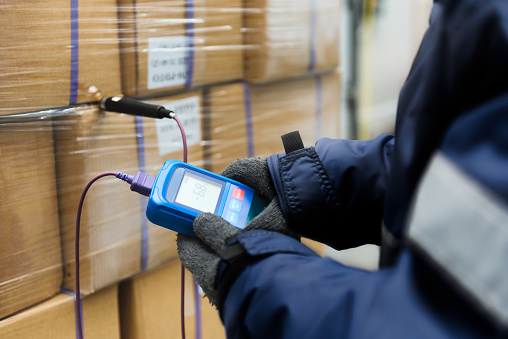How Malaysian Logistics Firms Handle Temperature-Sensitive Products
Malaysia’s growing pharmaceutical, food & beverage, and biotechnology industries have sparked a sharp rise in the need for temperature-sensitive logistics solutions. From vaccines and fresh seafood to high-end cosmetics and industrial chemicals, the movement of perishable goods is more complex than ever. Malaysian logistics firms are meeting this challenge head-on, thanks to advancements in cold chain infrastructure, regulatory compliance, and smart logistics technologies.
In this blog post, we’ll explore how logistics companies in Malaysia handle temperature-sensitive products and what businesses should look for when choosing a cold chain partner.
1. What Are Temperature-Sensitive Products?
Temperature-sensitive products (TSPs) include any goods that require strict temperature control throughout the supply chain to maintain quality, safety, or efficacy. These can range from:
-
Pharmaceuticals and vaccines (2°C–8°C)
-
Fresh meat, seafood, and dairy products (0°C–4°C)
-
Frozen food (-18°C or lower)
-
Flowers and plants (5°C–15°C)
-
Industrial chemicals with low flash points
-
Luxury cosmetics and perfumes
The cold chain refers to the unbroken, temperature-controlled supply chain from origin to destination.
2. Malaysia’s Expanding Cold Chain Infrastructure
Malaysia has made significant investments in cold chain logistics in recent years, particularly in key trade zones such as Port Klang, Penang, and Johor Bahru. Facilities now include:
-
Bonded cold storage warehouses near ports and airports
-
Reefer container services with digital monitoring
-
Cold room logistics hubs integrated with last-mile delivery
-
Air-conditioned and refrigerated transport fleets
These developments are supported by incentives from the Malaysian Investment Development Authority (MIDA) for companies investing in cold chain logistics and food safety compliance.
🔗 MIDA – Cold Chain Logistics Industry
3. Cold Storage and Warehousing Facilities
A core component of managing TSPs is maintaining consistent storage conditions. Malaysian logistics firms provide:
-
Multi-temperature zones (chilled, frozen, ambient)
-
HACCP and ISO 22000 certified facilities
-
24/7 temperature monitoring and alerts
-
Humidity control for sensitive goods
Some warehouses are equipped with automated storage and retrieval systems (AS/RS) that minimize human handling and enhance hygiene control.
🔗 Learn more: Malaysia Cold Chain Warehousing Services – Malaysia-Agent.com
4. Real-Time Temperature Monitoring and IoT
Malaysian logistics firms are increasingly adopting IoT (Internet of Things) solutions and smart sensors to ensure the integrity of temperature-sensitive products. These tools allow for:
-
Continuous GPS + temperature tracking
-
Real-time alerts if temperature thresholds are breached
-
Tamper-proof audit trails
-
Remote access via mobile apps and cloud dashboards
Companies like Tiong Nam Logistics, GDEX, and CJ Century have integrated these tools into their fleets and warehouses to boost cold chain reliability.
🔗 Malaysian IoT Roadmap – MIMOS
5. Regulatory Compliance and Certifications
Transporting temperature-sensitive goods requires strict compliance with both local and international standards. Logistics firms in Malaysia often adhere to:
-
Good Distribution Practice (GDP) for pharmaceuticals
-
Halal logistics standards for food safety
-
Cold Chain Management Guidelines from the Ministry of Health (MOH)
-
ASEAN Guidelines for Cold Chain Management for regional trade
These certifications are vital for companies exporting to markets such as the EU, China, or the Middle East, where regulations are stringent.
🔗 Malaysian Ministry of Health – Food Safety
6. Cold Chain Transportation and Reefer Logistics
Transporting TSPs across Malaysia’s climate and road network requires specialized vehicles, including:
-
Refrigerated trucks and vans with backup power systems
-
Reefer containers for sea or intermodal shipping
-
Data loggers installed in transit to monitor temperature and humidity
-
Dedicated pharma and perishable delivery fleets
For high-value and high-risk products, some logistics firms offer temperature-validated packaging, escort delivery, and real-time proof-of-delivery systems.
🔗 Logistics Services Overview – https://malaysia-agent.com/services/logistics/
7. Challenges in Malaysia’s Cold Chain Ecosystem
Despite the progress, managing temperature-sensitive products in Malaysia is not without challenges:
-
Power outages and grid reliability, especially in rural areas
-
Last-mile delivery issues in traffic-congested cities like KL
-
Limited cold chain coverage in East Malaysia (Sabah and Sarawak)
-
High energy costs and carbon footprint from refrigeration
To overcome these, many firms are exploring solar-powered cold storage, eco-friendly refrigerants, and AI-driven route optimization.
8. Key Industries Driving Cold Chain Demand
Several Malaysian sectors are fueling the demand for high-quality temperature-controlled logistics:
-
Healthcare and Pharmaceuticals – With Malaysia aiming to be a pharmaceutical hub, vaccine and medicine distribution is critical.
-
Halal Food and Beverage – The export of processed halal food to Muslim-majority markets requires temperature and halal compliance.
-
E-commerce – Demand for perishable online grocery delivery is growing, especially in urban areas.
-
Agritech and Floriculture – Perishables like herbs, flowers, and seedlings require precise climate management.
🔗 Malaysia’s Halal Industry Master Plan
9. Choosing the Right Cold Chain Partner in Malaysia
When selecting a logistics firm for temperature-sensitive products, consider:
-
Do they offer end-to-end cold chain services?
-
Are their facilities certified and monitored?
-
Can they scale with your export/import volume?
-
Do they have experience in your product category (e.g., pharma, seafood)?
-
Are their systems digitally connected and trackable?
🔗 Learn more: Choosing the Right Logistics Agent – Malaysia-Agent.com
Final Thoughts
In a tropical country like Malaysia, handling temperature-sensitive products requires precision, experience, and infrastructure. The right logistics partner will not only safeguard your products but also help your business build trust and expand into global markets.
From smart warehousing and certified fleets to compliance and real-time monitoring, Malaysia’s cold chain logistics is evolving fast—and the best firms are rising to meet international standards.
🔗 Get help with cold chain logistics in Malaysia: https://malaysia-agent.com/contact-us/
🔗 Explore more logistics blog content: https://malaysia-agent.com/blog/
